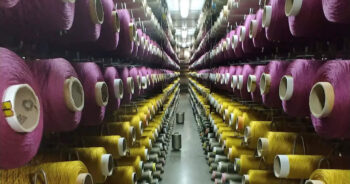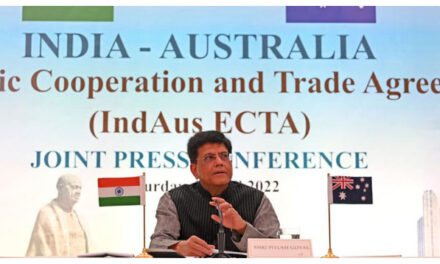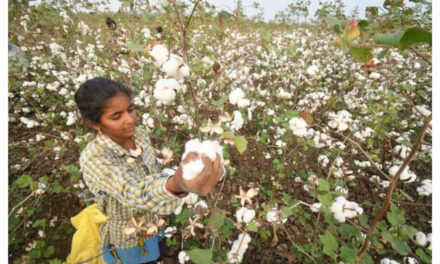The Panipat market is facing a dual challenge of slower demand from end-consumers and lower supply of raw materials, resulting in squeezed margins for the home furnishing segment’s value chain. However, recycled yarn prices remain unchanged.
In Ludhiana, mills were not eager to sell their stock, causing cotton yarn prices to rise. “Spinners are limiting cotton yarn supplies in anticipation of higher prices in the coming weeks. Consumer industry is buying more cotton yarn to build up stock as cotton arrival season is ending,” a trader from Ludhiana market told. Trade sources said that buyers were purchasing cotton yarn for extended periods to gradually build up their stock.
According to market report, 30 count cotton combed yarn was sold at Rs. 278-288 per kg (GST inclusive); 20 and 25 count combed yarn were traded at Rs. 268-278 per kg and Rs. 272-282 per kg respectively; and carded yarn of 30 count was noted at Rs. 257-267 per kg.
Delhi’s cotton yarn prices remained steady due to lower demand from the downstream industry. “Buyers were purchasing cotton in smaller quantities and demand remained weak, which did not support yarn prices. Cotton yarn prices remained at previous levels,” a trader from Delhi market told. In Delhi, 30 count combed yarn was traded at Rs. 280-285 per kg (GST extra), 40 count combed at Rs. 305-310 per kg, 30 count carded at Rs. 255-260 per kg and 40 count carded at Rs. 285-290 per kg.
The recycled yarn market in Panipat faced a lower supply of raw materials, with the region’s prominent home furnishing textile hub experiencing both reduced availability of raw materials and poor demand from domestic and international markets. However, yarn prices did not see significant movement, and both comber and recycled polyester fibre were sold at previous levels.
In Panipat, 10s recycled PC yarn (grey) was traded at Rs. 88-92 per kg (GST extra); 10s recycled PC yarn (black) was traded at Rs. 60-65 per kg; 20s recycled PC yarn (grey) at Rs. 95-100 per kg and 30s recycled PC yarn (grey) at Rs. 150-155 per kg. Comber prices were noted at Rs. 148-150 per kg.
Recycled polyester fibre (PET bottle fibre) was noted at Rs. 78-89 per kg. Cotton comber gained Rs. 4 per kg, while recycled polyester fibre increased by Rs. 2 per kg, as per market report. Lower supply of cotton comber indicates that spinners have reduced the production of cotton combed yarn.
North India’s cotton prices demonstrated a bearish tone, with the natural fibre decreasing by Rs. 20-30 per maund of 37.2 kg. According to the traders, weaving and garment industry demand was not encouraging, so spinners remained hesitant in cotton buying. Cotton prices were reported at Rs. 6,240-6,340 per maund of 37.2 kg in Punjab and Haryana and Rs. 6,450-6,550 per maund in upper Rajasthan, and Rs. 60,500-62,500 per candy of 356 kg in lower Rajasthan. The arrival was noted at 9,000 bales of 170 kg in north Indian markets.
 The cotton yarn trade in North India experienced a mixed trend today, with prices increasing in Ludhiana but remaining stable in Delhi. Ludhiana’s market saw a Rs. 2 per kg gain in cotton yarn prices due to higher demand from the weaving industry, despite slower demand from end-consumers. Traders have noted that buyers are eager to purchase cotton for longer periods because the cotton arrival season is coming to an end. In contrast, the Delhi market experienced weaker sentiment and stable cotton yarn prices.
The cotton yarn trade in North India experienced a mixed trend today, with prices increasing in Ludhiana but remaining stable in Delhi. Ludhiana’s market saw a Rs. 2 per kg gain in cotton yarn prices due to higher demand from the weaving industry, despite slower demand from end-consumers. Traders have noted that buyers are eager to purchase cotton for longer periods because the cotton arrival season is coming to an end. In contrast, the Delhi market experienced weaker sentiment and stable cotton yarn prices.












